19th Century French Fashion Advertisements
A very unique and interesting project that came into our studio recently was a pair of mix-media French fashion advertisements, both dating back to the 1870s. Both pieces were created by Adele-Anais Toudouze, one of the major artists for La Mode Illustree, (Fashion Illustrated), a French fashion magazine, published in Paris in the 19th century.
The advertisements are comprised of hand colored engravings with miniature fabric dresses adhered to the engraving. These advertisements were displayed on the walls of high end French dress shops as functional displays, much like pages from a catalogue, inspiring women to purchase the dresses being showcased.
Both artworks before restoration
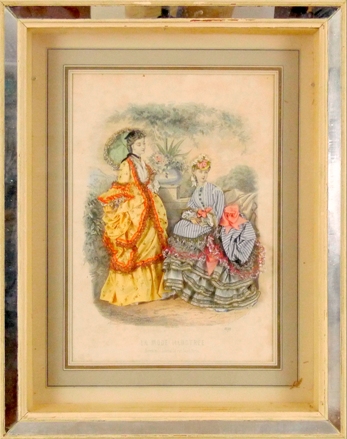
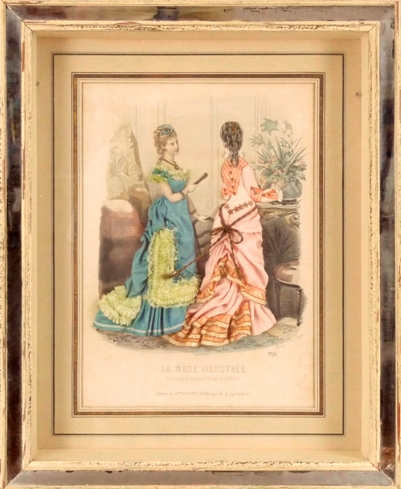
In the mid to late 19th Century, European women of means became increasingly concerned with current trends and fashion. The development of the sewing machine only increased the demand for intricately crafted French dresses. The burgeoning fashion industry took advantage of this, and began catering toward upper middle class and upper class women, not only in France but in other places as well, particularly Britain and eventually America.
Fashion became emblematic for what Victorian Era women strove to accomplish: namely, grace, elegance, and charm in the way they both dressed and acted. Upper middle class and upper class woman would make regular visits to French dress shops in order to become informed of the styles and fashion trends.
Paper and Textile Restoration
Restoration of the Artwork
These original fashion advertisements arrived to us in very poor condition. The engravings were highly acidic and noticeably discolored. The frames were quite abraded and dirty. When the advertisements were framed, the prints were adhered to a backing board, which had grown acidic over time, causing overall discoloration as well as brownish lines to form around the edges of the prints and mats, a condition known as mat burn. The prints and matting also had mold on them. Since the prints were matted with an acidic mat board, a noticeable level of discoloration was the result. The acidity of the mat board had leeched into the engraving, causing a brownish discoloration throughout the entire engraving. In order to fix this problem, the artwork needed to be removed from the matting and backing board and treated.
Restoration of the Frame
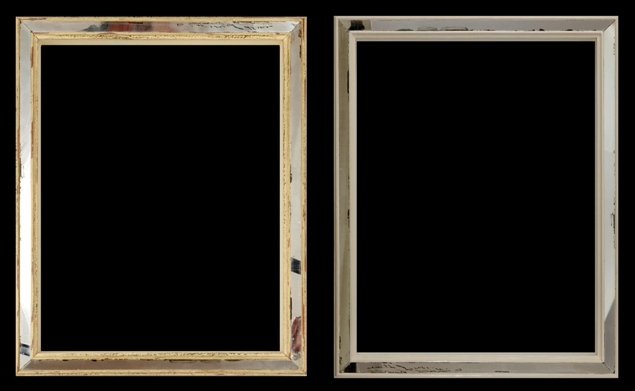
Frame- before and after restoration
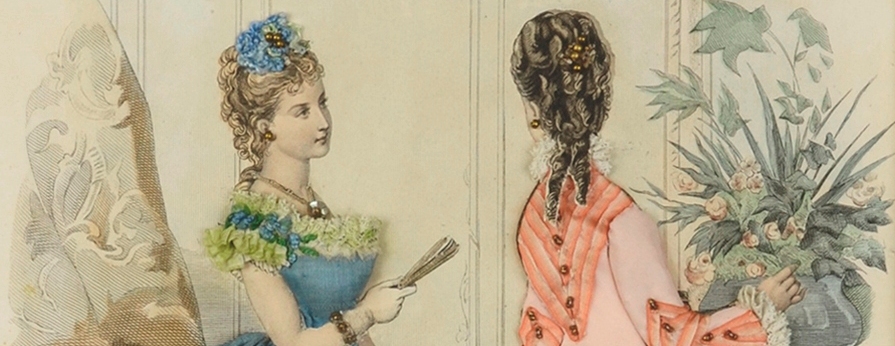
Detail -after restoration

Original Mat and An Exact Replica of the Original French Mat
The first step of the framing restoration process was to clean the surface of the frame. We then filled the most damaged areas of the frame. The frames were then resurfaced with a new color of off-white cream acrylic paint to complement the tonality of the newly restored engravings and dresses.
The original French matting that adorned the advertisements had, over time, become quite acidic and noticeably discolored. The decision was made, together with the client, not to restore the old matting, but rather to recreate an exact replica of the original French Mats. Once the new mats were completed, the prints, new matting, and frame were reassembled, thus completing the restoration project.
Both Artworks: Before and After Restoration

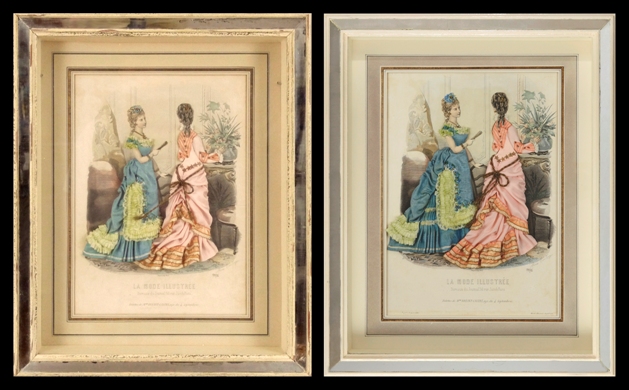
Contact Oliver Brothers or call us to schedule an appointment at 617-536-2323
"*" indicates required fields